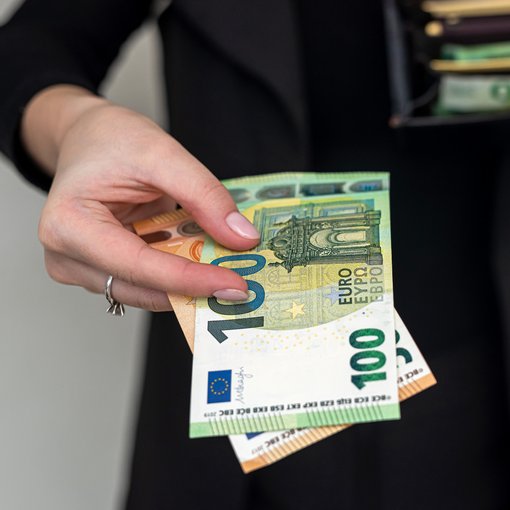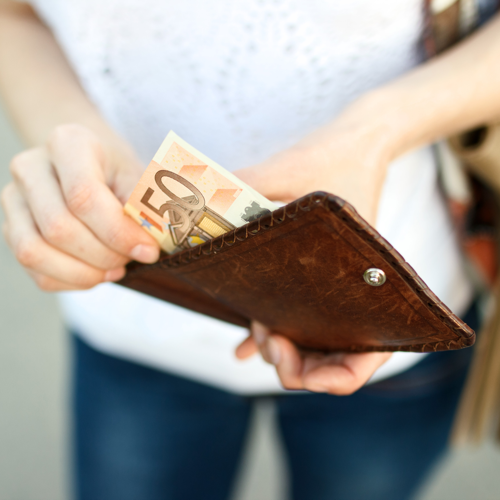
- Six minutes read
eCash’s impact on DACH neobanks post COVID-19
Despite being home to some of the biggest names in the industry — N26, bunq, and Vivid Money just to name three — the DACH region has lagged behind the rest of Europe when it comes to neobank adoption. Could accepting eCash move the needle as we emerge from the COVID-19 pandemic?
After a brief slowdown at the start of the COVID-19 pandemic, business is booming for neobanks in Europe, banks which in opposite to traditional banks do not have physical locations and offer only online services.
During 2021, the industry saw record levels of investment and growth. And if their European prospects have never looked better, there's one area of the continent where they're still struggling to gain a foothold: the DACH region.
While the number of Swiss consumers who have an account with a neobank increased by a respectable 8.2% between 2019 and 2022, user penetration is still relatively low at 11.7%. In comparison, almost one in three U.K. consumers have an account with a neobank.
Ironically, in Germany — a European fintech hotspot with an increasingly diverse array of neobanks — and Austria, growth has been even slower.
As of June 2022, a mere 3.2% of eligible Germans and 3.1% of eligible Austrians had an account with a neobank. And user penetration is expected to rise only by around 2.3% to 2.5% by 2026 in these two countries — a far cry from the exponential growth neobanks are enjoying in other parts of the world.
So why are DACH customers yet to warm up to digital-first banking, despite having access to some of the biggest, best-known, most well-funded neobanks on the planet?
And what can neobanks do to turn things around and start increasing market share?
Sticking with tradition
Neobank adoption has been slow in the DACH region for various reasons.
A 2019 S&P Global study found many Germans had security concerns about neobanks, and a conservative attitude towards banking in general.
German, Austrian, and Swiss consumers were also less likely to use online banking than consumers in other countries, despite Germany and Switzerland being voted the first and third most innovative economies in the world in 2018.
That said, the single biggest factor that has stood in the way of greater neobank adoption in the DACH region so far seems to be a continued preference for managing finances using cash.
In 2019, when countries like the U.K. and Sweden were well on their way to becoming cashless societies, 62.8% of payments in Germany were still being made with physical notes and coins.
Cash was also the predominant form of payment in Austria, where 54.3% of in-person transactions were paid in cash, while one in three in-person transactions in Switzerland were paid in cash.
Needless to say, digital-first banking doesn't mean you can't use cash. Customers can still make withdrawals from ATMs.
But managing your finances with cash isn't just about withdrawals. It also requires being able to make deposits easily and conveniently. And, as we observed here, many digital-first banks make this difficult, if not impossible.
In cash we trust
DACH consumers' preference for cash has deep roots.
Financial crises like the Panic of 1873 and hyperinflation in the 1920s, observes historian Robert Muschalla, had a huge economic and social impact on the German-speaking world, leading to the belief that it's better to hold cash than intangibles like stocks, shares, or even cards.
Swiss National Bank vice-chairman Fritz Zurbruegg agrees, describing the dominance of cash in Switzerland as a "cultural phenomenon."
But if there's no doubt that cash is embedded into the DACH region’s DNA, it has remained enduringly popular due to other factors too.
For starters, cash payments are private, and privacy is extremely important to DACH consumers. Germany, Austria, and Switzerland also have some of the strongest privacy laws in the world. And a 2020 study found Germans value privacy more than Americans.
More to the point, while fraud is less prevalent in the DACH region than it is in other countries, victims of fraud have historically been less likely to get their money back. According to a study from 2017, for instance, 38% of German fraud victims and 39% of Austrian fraud victims remained out of pocket.
Given the risk, it's not surprising that consumers would shun card payments even when paying online, opting instead for cash-based options like eCash and payment by invoice.
Has the COVID-19 pandemic changed DACH customers' preference for cash?
When COVID-19 restrictions hit in March 2020, DACH customers found themselves — to borrow the most overused phrase of the pandemic — in an unprecedented situation.
From living in a society where, to quote a popular Austrian saying, "only cash is true" (nur Bares ist Wahres), they went to being actively discouraged from paying in cash in order to slow the spread of the virus.
The pandemic also brought about rapid digitalisation. It's estimated that, during the first three months of the pandemic, the world made five years' worth of digital progress, and 84% of Europeans now bank online at least once a month.
But has COVID-19's impact led to permanent changes in DACH customers' payment and banking preferences?
Research suggests it hasn’t.
While cash use has declined somewhat, 43% of in-person payments in Switzerland and 40% in Germany were still being made in cash at the end of 2021. And, as of 2022, cash use has actually increased in Austria, with 66% of point of sale transactions paid in cash.
The volume of banknotes in circulation has also increased. Germany accounts for more than half of all Euro notes in circulation in 2022, while 86.2% of Swiss customers in a 2022 study said they keep cash at home.
This makes perfect sense. In times of crisis, cash often plays a critical role as a store of value, and the COVID-19 pandemic has been no different.
As Fabio Panetta, a member of the European Central Bank's executive board, noted in a 2021 speech:
"...at the beginning of the pandemic, consumers — especially those with low income — cut spending and increased their holdings of liquid assets. And cash is the most liquid asset..."
Crucially, while DACH customers, like other customers across Europe, have become more comfortable with digital, they're still thinking twice about trying neobanks due to their preference for cash. In our latest Lost in Transaction study, 44% of Germans and 43% of Austrians told us they'd be concerned about not being able to deposit cash when banking with a neobank.
For neobanks in the DACH region, eCash can become a competitive advantage
User-friendliness has always been a core neobank USP. But to be truly customer-centric, it's not enough for neobanks to have slick, easy-to-use apps. More importantly, they must cater to their customers' needs and preferences.
As we start what will hopefully be the final phase of the COVID-19 pandemic, it's clear cash will continue to be critically important for DACH customers, both as a payment method and as a store of value. So if neobanks want to make inroads in the region, they must make it as easy and intuitive as possible to manage finances online using cash.
eCash can bridge this gap.
With a few swipes on their neobank's app, customers can generate a barcode and complete cash deposits and withdrawals at the most convenient location.
By marrying effortless cash-management and the human touch with the agility, flexibility, and always-on convenience of digital-first banking, neobanks can create a compelling proposition that could finally tip the scales firmly in their favor.




